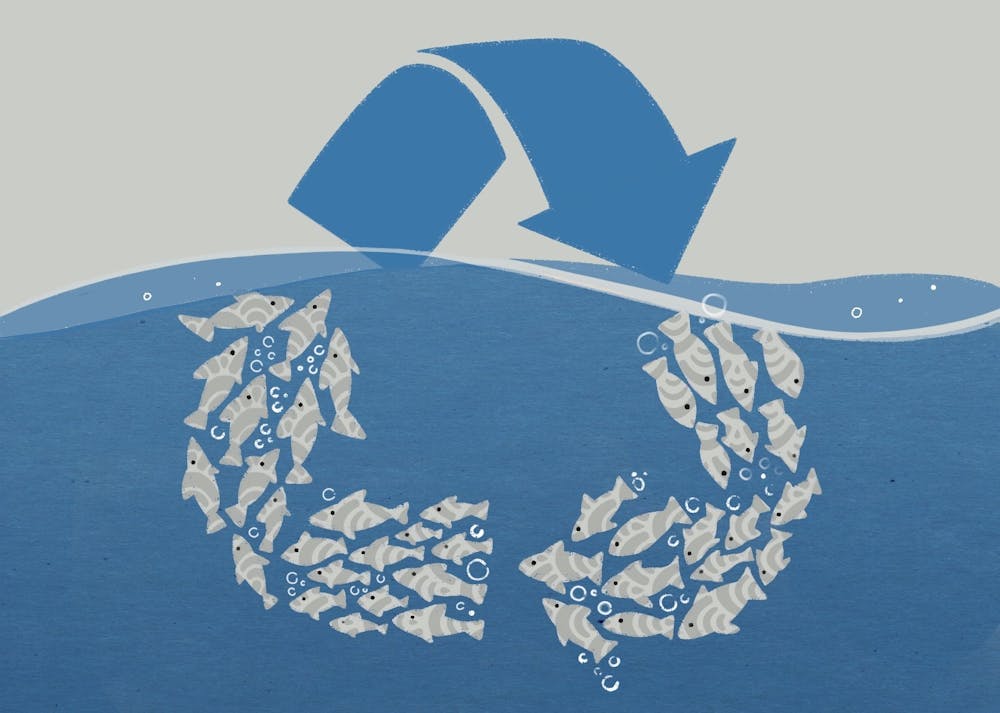ASU researchers joined the fight for more ethical seafood consumption along with two other universities in an ongoing federally funded study.
The National Science Foundation 2018 research project, funded by the U.S. Department of Agriculture aims to reduce U.S. seafood energy and water use by 20% each through strategies that improve seafood production systems and reduce waste, according to Johns Hopkins University Center for a Livable Future.
The USDA's 2020-2025 Dietary Guidelines suggested that an increase of seafood consumption could help lower intake of saturated fat and sodium, which people often consume more than is recommended. With a recommended increase in seafood consumption, USDA turned to three universities to reduce waste in the seafood industry.
The research project contains different case studies all contributing to seafood sustainability: Johns Hopkins, the principal investigator for the study, focuses on the production of seafood while ASU's role includes focusing on the social science work. University of Florida is also involved in seafood sustainability efforts.
Co-principal investigator Lekelia Jenkins for ASU's team said it is doing a case study focusing on interviewing smaller fisheries in Mexico and finding solutions to seafood waste.
"We were and are particularly looking at solutions and model programs that could be replicated or expanded as a way to reduce waste in the seafood supply chain," Jenkins said.
Jenkins said other components of the project are trying to quantify how much waste is happening, where and why.
“We mean not just sea life, but we mean fuel and water, as well,” Jenkins said.
Dave Love, associate scientist of the Seafood, Public Health & Food Systems Project at Johns Hopkins University is focused on analyzing the data of seafood waste trends.
"Because of all the inputs that go into seafood production, whether it’s the fuel for the boats, or the feed for fish, for agriculture. By the time it gets to the consumer, it has a lot of inputs in it," Love said. "So waste further down the supply chain is more meaningful, because there’s more embodied energy, water and time."
In researching seafood waste, Jenkins connected with a non-profit organization called SmartFish International.
One SmartFish goal is observant on reducing bycatch, or the unintentional catch of other marine species outside the target capture.
Gabrielle Lout, doctoral student studying human and social dimensions of science and technology, said she joined the project since it focused on small-scale fisheries in Mexico through SmartFish International.
“They (SmartFish) work with artisanal fishers in Mexico doing capacity building," Lout said. "They work with them to have better practices and teach them about finances; then connect them to sustainable markets in Mexico."
According to Jenkins, SmartFish established markets for more sustainably caught fish, which showed potential to make change because Mexico is a large source of seafood for the United States.
“What they're doing there really impacts what food is on your plate,” Jenkins said.
Lout said unlike other organizations, their research is focused on how waste, overfishing and bycatch affects food security around the world.
Although the project was expected to be completed in January 2020, part of Jenkins’ and Lout’s research was placed on hold due to COVID-19 precautions. According to Love, the research team has requested an extension and plans to roll out interviews with small fisheries in Mexico for another round of data collection, which may be complete by the end of this year.
At the moment, data is in the preliminary stage and will not be released until after further collection, Love said. Eventually the research hopes to find solutions on seafood waste in grocery stores and find sustainable ways to reform the fishing industry.
Reach the reporter at lizbetflores23@gmail.com and follow @florelizbet on Twitter.
Like The State Press on Facebook and follow @statepress on Twitter.
Continue supporting student journalism and donate to The State Press today.




